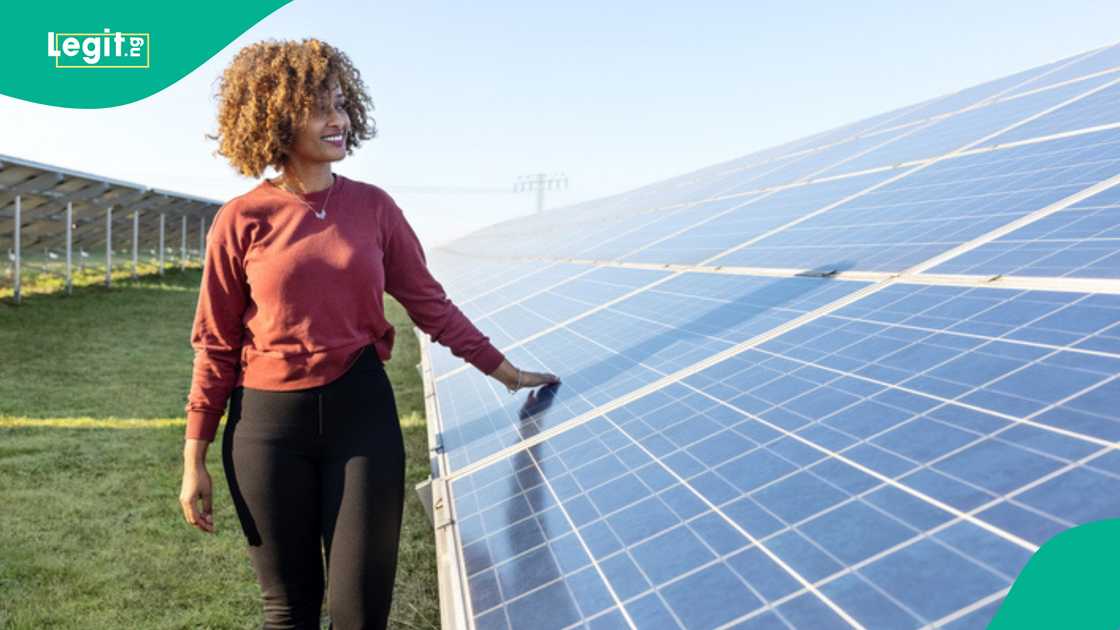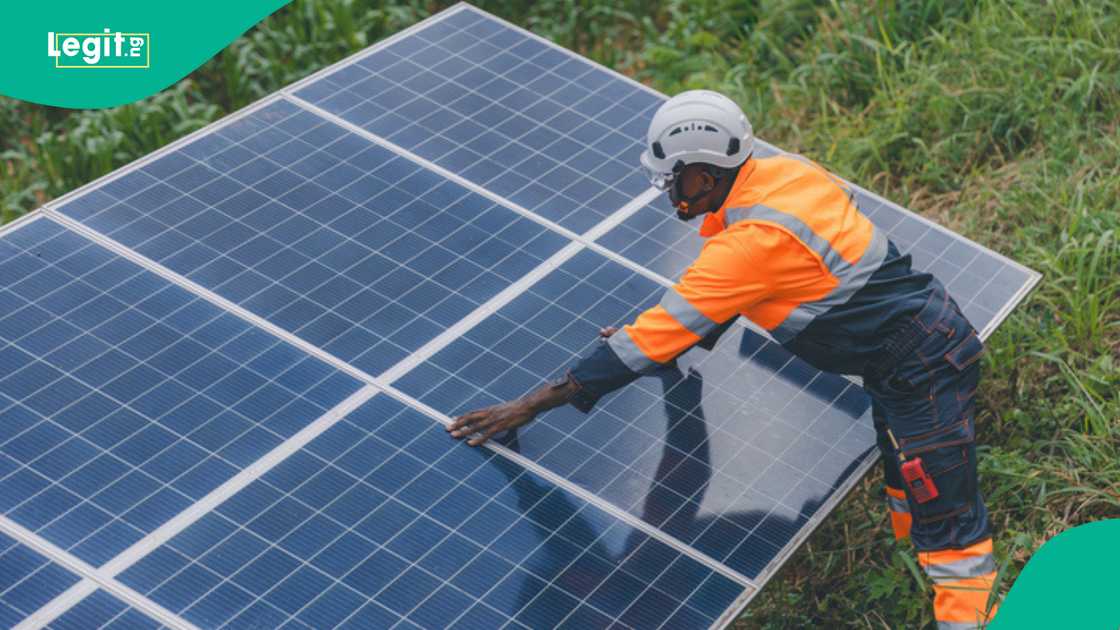No More Diesel: FG Launches N100bn Solar Project to Power Public Infrastructure
- NPSSI aimed to accelerate the installation of solar energy systems in key public sector facilities across Nigeria, with initial funding of N100 billion from the federal government
- The programme focuseed on fostering inter-agency collaboration and attracting private investment to support Nigeria's clean energy transition and reduce the reliance on fossil fuels
- NPSSI would create local jobs, improve energy efficiency, and contribute to Nigeria's goal of becoming a renewable energy hub in Africa
Legit.ng journalist Zainab Iwayemi has 5-year-experience covering the Economy, Technology, and Capital Market.
The National Public Sector Solarization Initiative (NPSSI) was formally introduced on Thursday after a memorandum of understanding was signed by the Ministry of Finance Incorporated (MOFI), the Infrastructure Corporation of Nigeria (InfraCorp), the Budget Office, and the Rural Electrification Agency (REA).

Source: Getty Images
The goal of NPSSI is to accelerate the installation of distributed solar energy systems across vital public sector facilities, such as government buildings, schools, hospitals, and security stations.
The NPSSI represents an important step toward Nigeria's clean energy transition and the localisation of renewable infrastructure, according to Abba Aliyu, managing director of REA, who spoke about the project.
“What makes this truly remarkable is the collaborative spirit behind it. We are witnessing a new era of inter-agency synergy, driven by creativity, fiscal responsibility, and a shared determination to reduce the cost of governance while meeting our national energy transition goals,” he said.
According to Aliyu, the federal government has provided N100 billion in funding for the project's initial phase.
He added that future stages will employ blended financing models to attract private investment from both domestic and foreign sources, without relying on contingent liabilities or sovereign guarantees.
Tanimu Yakubu, the director-general of the Budget Office, also spoke at the signing event and stated that solarisation is now essential for closing Nigeria's long-standing energy gap and improving the financial efficiency of all public sector operations.
“The NPSSI will help demonstrate the ability of public institutions to pay for clean energy, which is exactly what the capital market needs to ensure bankability,” he said.
Nigeria needs to localise energy
The program, according to Lazarus Angbazo, CEO of InfraCorp, is a blueprint for Nigeria's infrastructure funding system going forward.
“For decades, the sector has relied solely on public financing,” he said. “The government is indispensable, but it is not enough. We need to localize energy capability and integrate the supply chain.”

Source: Getty Images
Nigeria must now reconsider its energy finance methods in order to move away from the dominance of fossil fuels and expensive power, according to Armstrong Takang, MD of MOFI, who was represented by Femi Ogunseinde, the agency's chief investment officer.
“Our energy mix has historically been unfairly weighted toward fossil fuels. We must create business models that reduce the cost of power and expand access without sovereign guarantees,” he said.
Takang also mentioned that NPSSI is expected to create local jobs, promote sustainability, and support Nigeria’s ambition to become a renewable energy hub in Africa.
Tolu Olaoni said,
"With the look of things in Nigeria, More solar projects need to be encouraged to facilitate stable power supply."
Distribution company to build solar energy project
Legit.ng reported that J-Marine Logistics Limited and Kaduna Electric Distribution Company (KEDCO) signed a memorandum of understanding (MoU) for the construction of a 100-megawatt (MW) solar energy project that incorporates a battery energy storage system (BESS).
The plan was a significant move toward tackling power supply concerns and laying the groundwork for equitable economic growth and development, according to KEDCO chairman Aminu Suleiman, who spoke at the signing of the Memorandum of Understanding on Friday in Kaduna.
According to him, the partnership would increase industrial productivity, provide cleaner energy, and strengthen the dependability of power supplies.
Proofreading by Funmilayo Aremu, copy editor at Legit.ng.
Source: Legit.ng




